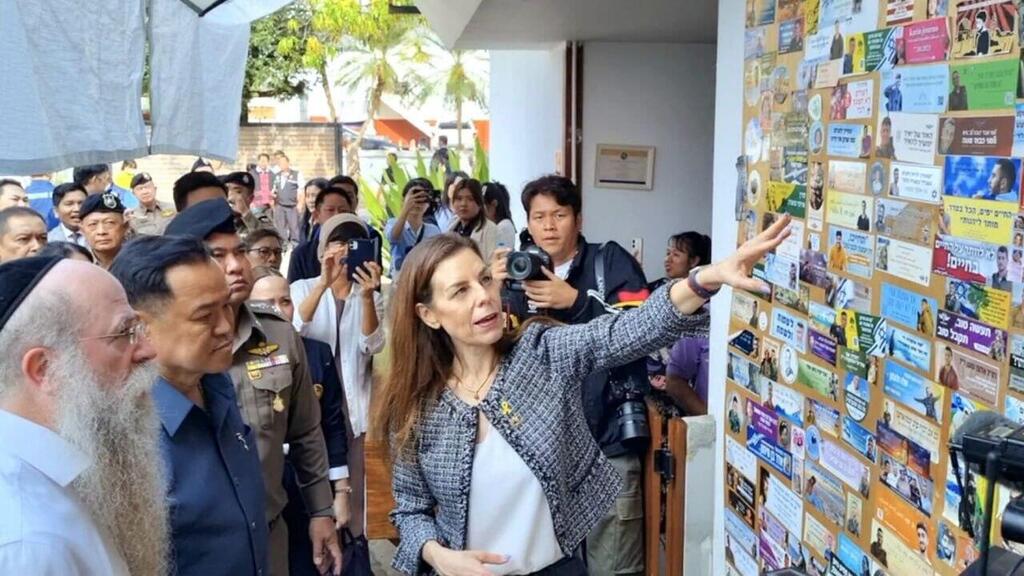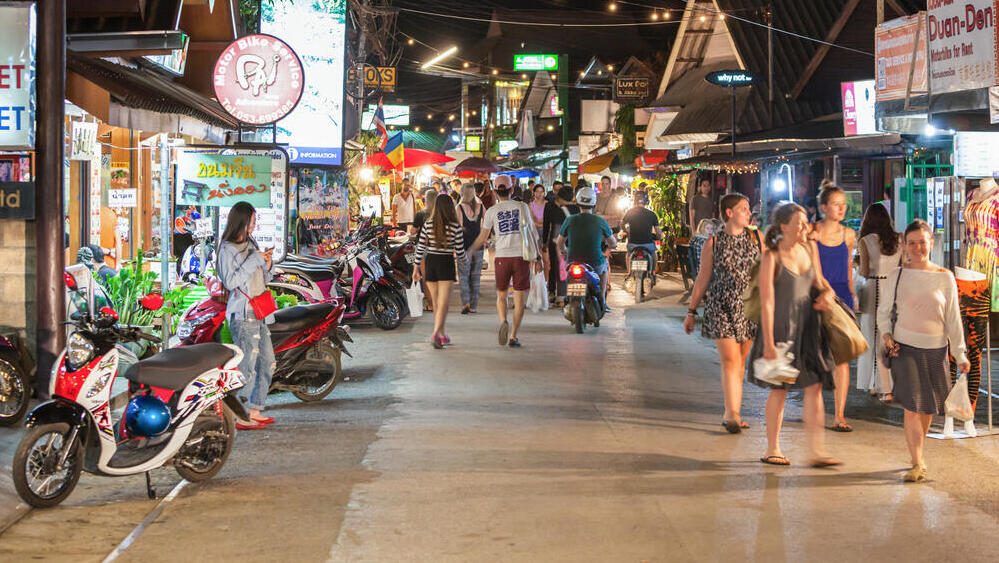Israel’s ambassador to Thailand, Orna Sagiv, visited the northern town of Pai last Wednesday, accompanied by Thai Deputy Prime Minister and Interior Minister Anutin Charnvirakul, to defuse tensions caused by a series of incidents involving Israeli tourists in the country and Pai in particular.
Also attending were Chabad emissary Rabbi Nehemia Wilhelm, who operates a Chabad center in Pai, Israeli Consul Eli Sneh and Israel Police’s attaché in Bangkok. The visit came days after the Israeli Embassy issued a set of guidelines for Israeli travelers to help them avoid unnecessary incidents.
Debunking conspiracy theories
Earlier in the week, Rabbi Wilhelm opened the Pai Chabad center to local media to counter conspiracy theories circulating in Thailand. These claims suggested that 30,000 Israelis had settled in Pai, believing it to be the “Promised Land,” and that the Chabad center was laying the groundwork for their settlement. Some reports even alleged that Israelis were digging tunnels in Pai to stockpile weapons.
“These theories gained traction on social media, including from pro-Palestinian sources and were eventually picked up by major Thai news outlets,” Wilhelm said. He clarified that while around 30,000 Israelis had visited Pai in 2024, only a few hundred were in the town at any given time.
When a journalist asked him, “Why do you believe Pai is the Promised Land?” Wilhelm responded, “You are mistaken. Pai is the Promised Land for the Thai people and Israel is the Promised Land for Israelis. There is no need to mix the two.”
Diplomatic outreach and local concerns
The next day, Charnvirakul visited the Chabad center with Sagiv. She showed him a wall displaying stickers of hostages and fallen soldiers from Israel’s war with Hamas. “We know some people are upset when Israeli tourists put up these stickers,” she explained, “but many have lost friends and family and want to express their grief. There is no bad intention behind it.”
Get the Ynetnews app on your smartphone: Google Play: https://bit.ly/4eJ37pE | Apple App Store: https://bit.ly/3ZL7iNv
She noted that Chabad had designated a wall for this purpose to prevent stickers from being placed in public areas. Later, an event at a Pai hotel brought together about 150 attendees, including local government officials, police and military commanders, business representatives, Israeli residents and local community members.
3 View gallery


Sagiv and Thai Deputy Prime Minister Anutin Charnvirakul
(Photo: Embassy of Israel Bangkok)
Charnvirakul said most issues stemmed from cultural differences and praised efforts by the Israeli Embassy and Chabad to educate Israeli tourists about Thai customs. “We also need to respect Israeli culture,” he added. “Not every time someone raises their voice in the street does it mean they are being disrespectful.”
Sagiv said that before the COVID-19 pandemic, 200,000 Israelis visited Thailand annually and that number had surpassed 300,000 by 2024. “With such a large number, it’s inevitable that some will misbehave but it’s unfair to judge all Israelis by the actions of a few,” she said.
She acknowledged that some Israeli tourists might not fully understand Thai culture and may unintentionally offend locals but stressed that Israelis deeply respect and love Thailand. She also expressed concern over signs barring Israelis from certain establishments, saying they reminded her of “dark periods in Jewish history when Jews were denied entry.”
After her speech, Charnvirakul repeated her message in Thai, signaling that it was time to move past the tensions and restore normal relations.
Business owners weigh in
Local business representatives also spoke at the event. A hotel industry representative said, “I don’t want to single out Israelis but two things bother us: tourists who order food and refuse to pay if they don’t like it and those who put up memorial stickers everywhere.”
A day earlier, Sagiv and Rabbi Wilhelm met with Israeli travelers and residents in Pai, where it became clear that many tourists lacked awareness of Thai cultural norms. Examples included walking shirtless in public, which is considered offensive in Thailand and speaking loudly on the streets.
Their message was that Israelis must be more mindful of local customs and remember they are guests in Thailand. “I have been here for 30 years, and we never had issues with Israelis,” Wilhelm said.
“But when one incident happens, then another, and people ride motorcycles without helmets or show a lack of respect, it builds up and causes resentment. That’s unfortunate,” he added.
Israeli officials expressed hope that the visit by Sagiv and the Thai interior minister would mark the end of the tensions.




